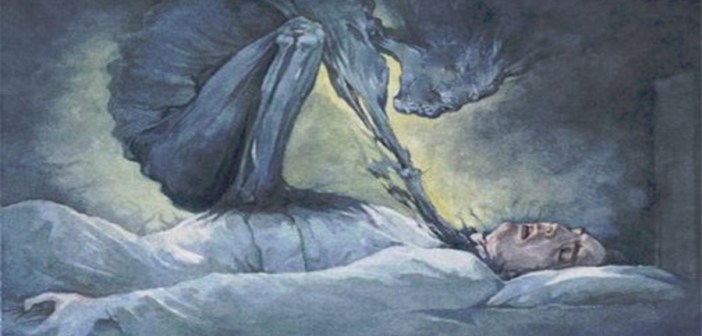Paralysis during sleep may occur in a person only once or may occur frequently, several times a night. The good news is that this condition is not considered a health problem.

Paralysis during sleep refers to the situation where a person is conscious but unable to move. This occurs when a person goes from sleep to sleep.
Of all the strange sensations you can experience, this is the worst. It’s terrible to be awake and not to move.
Sleep paralysis is a strange and potentially frightening phenomenon. In essence, people who are experiencing sleep paralysis can not move any part of their body, but they still remain conscious. Those who have experienced this paralysis are often terrified, an understandable reaction because you have no voluntary control over your body.
During sleep, the body alternates from REM sleep (fast eye movement) to NREM (without rapid eye movement). A REM and NREM sleep cycle lasts about 90 minutes. NREM sleep appears first and accounts for up to 75% of total sleep time.
Fortunately, this is a relatively common phenomenon and does not cause physical dangers to the body. Sleep paralysis occurs during one of the two hypnagogic and hypnopompic stages. Hypnosis sleep paralysis occurs before falling asleep, while hypnosis sleep paralysis occurs during sleep.
As soon as we fall asleep our body becomes deeply relaxed, and the mind less conscious. However, when hypnagogic sleep paralysis occurs, the mind remains conscious while the body reaches an involuntary state of relaxation. People who realize they are incapable of moving usually have a tendency to panic.
If you are unable to move or talk for several seconds or minutes, then when you fall asleep or wake up, you may be suffering from paralysis in recurrent sleep.
Sometimes the person suffering from sleep paralysis can feel absolutely exhausted. Experience can be overwhelmingly emotional and some people will wake up or cry, with fast heart rate, embarrassed by experience and often avoid telling others about their experience.
During sleep, the muscles are paralyzed so that we do not act in our dreams. When you experience hypnosomal paralysis, a certain part of the brain wakes up earlier.
Some people are lucky if they have this condition of paralysis once or twice in life, but others have this condition many times a week.
A recent study at Penn State University shows that 8% of the population has frequent problems with sleep paralysis. People with mental disorders such as anxiety and depression are more prone to frequent episodes of sleep paralysis.
Often you do not need to treat this condition. However, it is advisable to consult your doctor if you have any of the following problems:
– Your symptoms cause anxiety
– As a result of the manifestations, you will feel tired during the day
– the symptoms persist during the night.
Click Here to learn how to Cure Snoring and Sleep Apnea

Cure Your Insomnia in 6 Simple Steps & Start Sleeping for 8 Hours Every Night – in Just 3 Days!

No Comments Yet